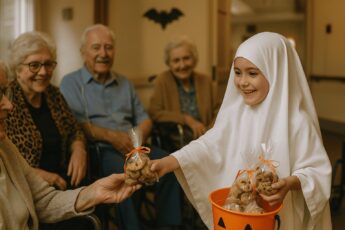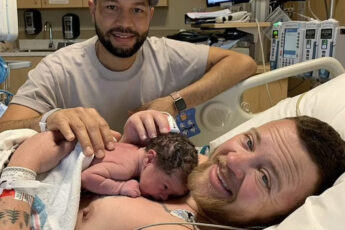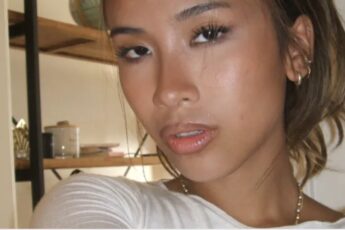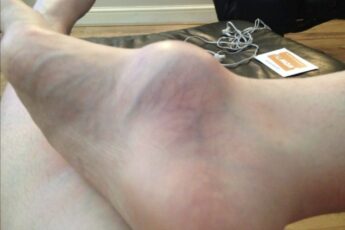Edward Grant’s penthouse was immaculate, polished to perfection, and utterly lifeless. Most mornings it felt less like a home and more like a mausoleum. The silence was heavy, almost unbearable—broken only by the distant hum of the city below.
In the corner of that silence sat his son, Noah. Once a bright-eyed, mischievous boy, now nine years old and bound to a wheelchair. His little body hadn’t moved with intention in nearly three years. His lips hadn’t formed words. His gaze rarely landed on anything.
The accident had taken Edward’s wife in an instant. But it had stolen Noah slowly, piece by piece, leaving behind a fragile shell of the child he once knew.
Edward had fought against it with all his money, all his influence. Therapists. Specialists. Cutting-edge treatments. Millions spent chasing hope that always slipped through his fingers. He told himself he still believed. But deep down, he had stopped expecting miracles.
Then came the morning he came home early.
It was supposed to be another predictable day. Edward stepped through the door, already bracing himself for the familiar, suffocating quiet.
But instead—he froze.
There, in the middle of the marble floor, was Rosa, the maid he had barely ever noticed. She was barefoot, her simple skirt swaying as she moved in small, graceful circles. And in her hand—held delicately, firmly—was Noah’s.
And Noah… was watching her.
Not staring blankly. Not drifting off into some unreachable distance. His eyes followed her, alive with something Edward hadn’t seen in years. His lips trembled, and then—faintly, almost imperceptibly—he hummed.
Edward’s throat closed. He couldn’t speak. Couldn’t breathe.
For the first time in years, his son wasn’t a silent shadow. He was present. Awake. Connected.
Rosa spun lightly and laughed, her voice warm and unafraid.
“Good job, Noah. You’re keeping up with me! Shall we try another step?”
Noah’s head tilted, the tiniest nod. His fingers squeezed her hand.
Edward gripped the doorway, shaken to his core. This wasn’t medicine. This wasn’t a million-dollar device or a specialist flown in from across the world. This was something simpler. Something he had overlooked completely.
And what happened after that moment would unravel everything Edward thought he knew about healing, about grief… and about what truly makes a family whole.
You won’t believe where this dance leads…
Edward stood in the doorway, unable to move. His son’s eyes—once clouded and empty—were fixed on Rosa as though she were the only light in the room.
For three years, he had watched Noah drift like a ghost, unreachable. Now, here he was: humming, nodding, alive.
Edward’s voice cracked as he finally whispered, “Noah…”
Rosa startled, nearly letting go of the boy’s hand. She bowed her head quickly, embarrassed. “I’m so sorry, Mr. Grant. I didn’t hear you come in. I was just…”
But Noah’s fingers clung tighter to hers. His lips trembled—and then, as if pulling the word from the deepest corner of himself, he whispered too.
“Dad.”
Edward staggered back a step, his eyes burning. He hadn’t heard that word in years. He fell to his knees beside the chair, cupping his son’s face with trembling hands.
“My boy… I’m here. I’m right here.”
Rosa looked away, tears glistening, as if she had intruded on something sacred. But Edward reached for her hand, his voice unsteady.
“No. Don’t stop. Please. Keep going.”
And so she did. She danced barefoot on the marble floor, humming a tune from her childhood, guiding Noah’s small hands as he tapped against the rhythm. Edward sat beside them, watching his son return to him one note, one movement, one heartbeat at a time.
In the weeks that followed, Rosa’s “dance sessions” became a ritual. The boy who once lived in silence began humming, then laughing, then moving more—tiny gestures that felt like miracles. Doctors were astonished, but Edward knew the truth: healing had come not from science, but from love, patience, and the courage of a woman no one else noticed.
One evening, as the sun set through the penthouse windows, Edward turned to Rosa.
“You’ve done more for my son in a month than the world’s best doctors did in three years,” he said softly. “You’ve given him back… and me too.”
Rosa shook her head. “I only reminded him of the music he already carried inside.”
Edward looked at his son—smiling now, eyes bright—and for the first time since the accident, the penthouse didn’t feel like a tomb. It felt like a home.
Because sometimes family isn’t just the one you’re born with. Sometimes, it’s the people who take your hand, spin you around, and remind you that even after grief, life can still dance.







